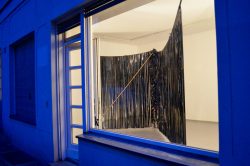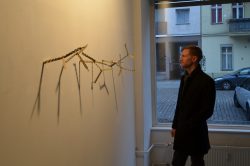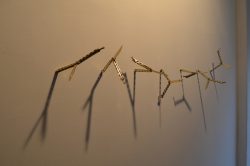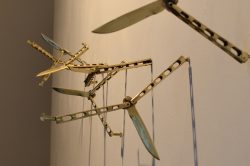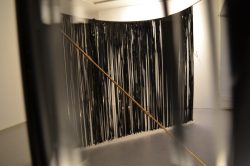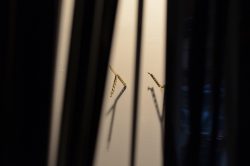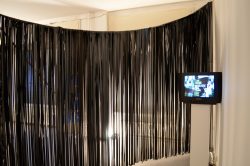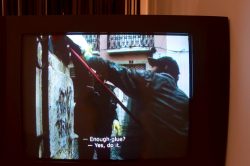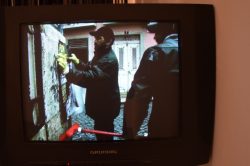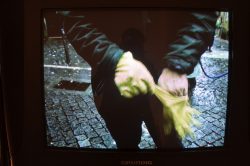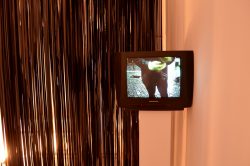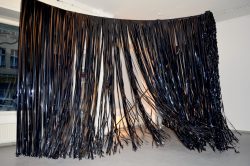DIE ZUNGE AN DEN GAUMEN NÄHEN – Gustavo Sumpta
FEBRUARY 25 – MARCH 25 2017
Installation / sculpture / performance
curated by Tiny Domingos
Combining everyday objects, video and sculptures in a major space intervention, Gustavo Sumpta will transform the exhibition space into an immersive installation. A new series of sculptures will be presented for the first time to the public.
The exhibition is inspired by Charles Laughton’s film ‘The Night of the Hunter’ (1955) in which Robert Mitchum plays Harry Powel, a terrible manipulator and seducer who pretends to be a pastor to achieve his ends. His homilies parody the radio sermons and the euphoric and prosperous America of the 1950s and echoes strongly in the current Trump era. The film is also a plural portrait of generous artists rejected by the morals of their century.
Over the last 15 years, Gustavo Sumpta has affirmed himself as one of the most renowned performance artists in Portugal. His work dispenses expensive technological means and fashionable ‘ex-machina’ effects. Its sparseness is radical and incompatible with a quick and distracted observation. His artistic practice involves the apprehension of the Genius loci, the revelation of the hidden side of the seemingly trivial elements he encounters as well as the social and psychological tensions that we strive to dissimulate.
Gustavo Sumpta was born in 1970 in Luanda (Angola), where he remained after the Portuguese moved out of Angola (especially from 1975 onwards). Post colonialism is not for him an academic approach or a curatorial perspective but a reality lived in the first person as the only white pupil of his school and his neighborhood during the ups and downs of Angola of the post-independence period. An intense experience that is reflected in the forcefulness and vitality of his artistic practice. At the age of 18, he came to Portugal where he studied History and graduated in performing arts in Oporto. He worked with renowned personalities from the most diverse artistic disciplines: with the film director Pedro Costa, with the choreographer João Fiadeiro and with the sculptor Rui Chafes. Interdisciplinary experiences that reinforce his work in which we find a dramaturgical density, a great attention to aesthetics, a very particular look and rhythm that the Portuguese arthouse cinema has been disclosing internationally and that are closely linked to the socio-cultural context, the forms of aesthetic resistance and the Lusitanian ‘modus vivendi’. (TD)
supported by Fundação Calouste Gulbenkian
Please read the integral curatorial text (PDF)
in English
in German
in Portuguese
